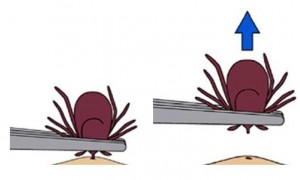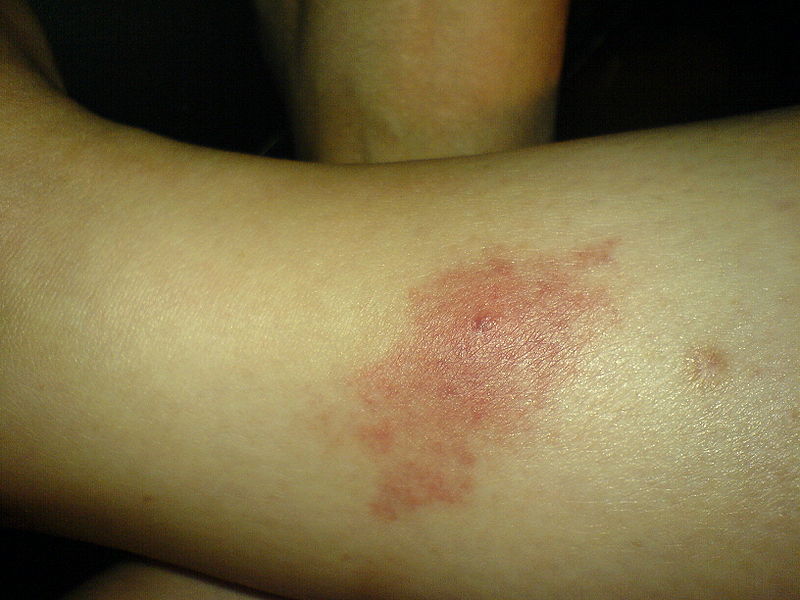READY TO GET STARTED?
REQUEST A FREE ESTIMATE
Fill out the form below or call (888) 466-7849 for a free, no-obligation estimate.

Insect repellent is not only used to prevent bites from insects; it also plays a vital role in public health. Proper repellent protects large populations of people from the diseases spread by mosquitoes and other biting insects. With that in mind, the next question is, what is the best repellent to use? There are several options available worldwide but two of the most common are those containing DEET and picaridin. Let’s break down the pros and cons of each.
DEET has been used since its development in the 1940s. It was originally developed to protect US soldiers from mosquito-borne diseases while they were serving overseas. It is considered the most popular repellent product on the market and, in fact, is endorsed by the World Health Organization. Because it has been available for such a long period of time, there is a large volume of data on its use, safety, and efficacy.
DEET is a synthetic compound that is effective at repelling mosquitoes and ticks for anywhere from 1 to 6 hours, depending on how high of a concentration is applied. It also has a low rate of adverse effects.
Adverse effects are usually only reported when a high concentration of product is applied. For this reason, it is recommended to use a lower concentration with more frequent applications. The most common adverse reaction is a rash and skin irritation. Some people report an aversion to the smell. Others dislike the greasy residue DEET leaves on the skin.
DEET is known to dissolve some plastics and can cause damage to sunglasses if not cleaned off immediately. It can also damage some synthetic materials like spandex, rayon, and vinyl, which commonly make up clothing worn during the time of year when mosquitoes are active.
Picaridin was developed in the 1980s and was made available in Australia and Europe on 1998 and the US in 2005. The delay in availability was due to the need for ongoing testing regarding safety and efficacy. It is now the best selling repellent in both Europe and Australia. Picaridin is reportedly as effective as DEET.
Picaridin is a synthetic chemical produced to mimic the naturally occurring piperidine. It is also known as icaridin. The EPA has deemed picaridin safe for use on human skin. Proponents of picaridin prefer it over DEET because it is not as greasy, is odorless, and doesn’t damage plastics or synthetic clothing. Some US companies are already producing products containing picaridin, such as Cutter Advanced, Sawyer Premium, and Repel Smart Spray.
Picaridin doesn’t appear to have any negative effects on the environment. It is mildly toxic to some fish in large doses but is nontoxic to birds and land mammals. It may bind to soil but it is broken down by bacteria in the soil before it can leach into groundwater.
Both DEET and picaridin are considered safe for human use. Both are proven to be effective at repelling mosquitoes and other biting insects for about the same length of time. The CDC does not recommend the use of either product in infants under 2 months of age. They do recommend the use of either for children older than 2 months of age and for adults. the EPA also considers both products safe for use during pregnancy.
It is important to note that picaridin is shown to be AS effective as DEET but not MORE effective than DEET. When deciding between the two, the decision is based less on efficacy and safety and more on personal preference.
As always, if mosquitoes or other biting insects are causing problems for you in or around your home, contact your local pest control company for a free evaluation.
According to new information gathered by the CDC the number of lyme disease cases is 10 times higher than the 30,000 cases each year that has previously been reported. Because not every case is reported, recent efforts have uncovered that the number of lyme disease cases is about 300,000 each year. The CDC is conducting 3 complimentary studies to improve their count of lyme disease cases.

How to Properly Remove a Tick
Source
To prevent tick bites:
For more information on Lyme disease visit the CDC.
For more information on how to control ticks visit Northwest Exterminating.

Northwest Exterminating representative, Courtesy of AJC
Need tips on how to keep mosquitoes away?
These are just a few tips on keeping mosquitoes away. Mosquitoes are known carriers of diseases like West Nile virus, encephalitis, and heartworms in dogs. Make sure that you are protecting yourself and your loved ones. For more information, visit our blog or call Northwest Exterminating at 888.466.7849.
Why Do Mosquitoes Love Me So Much?
It’s important to protect yourself and your pets from ticks this season! Keep reading for more information on the little suckers!
BRIEF DESCRIPTION
HABITS
SPECIES
THREATS
PREVENTION
OTHER PESTS TO LOOK OUT FOR
Call Northwest Exterminating for information on how to protect your home and loved ones from ticks.
If you’ve spent any time in Savannah, Ga in the spring or fall, you know all about sand gnats, or as locals call them….the state bird. The sand gnat is not just the mascot for the Savannah Sand Gnats minor-league baseball team, but just like the baseball team, they’ll sting you, draw your blood and defeat you on the field.

Sand Gnat bite – Source
In the low country, the sand gnat is more of an issue than mosquitoes or fleas. Sand gnats live along waterways, such as the ocean, lakes, rivers, ponds, and marshes. They fly, bite, and suck your blood just like a mosquito, leaving behind
red, itchy bumps on the skin. Although blood has no nutritional value to the sand gnats, they need it so their eggs can mature prior to laying. Carbon dioxide draws sand gnats from up to 30 yards, they stay in a 300 foot zone where they breed around your home, fly less than 25 feet high and most adult females live for 2-3 weeks.
It is not unusual for the effects of a sand gnat bite to be more intense for a longer period of time than a mosquito bite. Unless you want to cover yourself from head to toe in the sweltering Savannah heat, be proactive. Commercial repellents with Deet can be useful to prevent biting, or you can try a local remedy such as taking garlic pills – that is, if you don’t mind smelling like garlic. However, a more “user friendly” remedy such as rubbing your arms with baby oil will prevent the sand gnats from biting as it provides a protective layer to your skin that the gnats can not penetrate.
For sand gnat treatment at your home or business, Call the Mouse! 888.466.7849 or visit online at www.callnorthwest.com
Barry Teubert
[email protected]